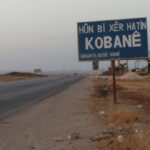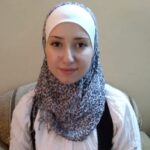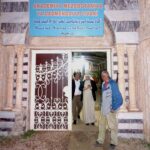Tel Marouf is a small town in northern Syria that was severely assaulted in 2014 by the extremist al-Nusra Front, the former Syrian branch of al-Qaeda that renamed itself as Jabhat Fatah al-Sham. The People’s Protection Units (YPG) and Women’s Protection Units (YPJ) resisted and eventually retook the area, but at the time, the entire population of Tel Marouf was forced to flee. Only after some years, 340 out of the 600 households returned. Most of the infrastructure was damaged; even the local mosque had been bombed by the attackers.

Translation: Administrative Divisions Law
In preparation for the forthcoming municipal elections in NES, planned for 11th of June [now postponed to 8 August, 2024], the DAANES passed a new law defining the administrative divisions of the NES region. This follows the DAANES’ publication of the new Social Contract in December 2023.
The Work of the Health Committee
The Health Committee was established on 6/12/2020 and is responsible for organizing and promoting women’s health work and stands against the policies of global capitalist powers that monopolize health care and make it a profit sector. It deals with the issue of health in all spheres of life physically, psychologically, spiritually, politically and socially, in contrast to the distortions caused by capitalist modernity which defines health only within the framework of the good physical condition of the person.
